There are a few reasons why your car’s AC gauge may be going up and down. One possibility is that the Freon levels in your car’s AC system are low.
When the Freon levels are low, the AC compressor has to work harder to cool the air, which can cause the gauge to fluctuate.
Another possibility is that there is a problem with the AC compressor itself. If the compressor is not working properly, it can cause the gauge to fluctuate.
If you’re not sure what is causing the problem, it’s best to take your car to a mechanic to have it checked out.
If your car’s AC gauge is going up and down, it could be a sign that your AC system is low on refrigerant.
If the gauge is reading higher than normal, it could also be a sign of a leak in the system.
Either way, it’s important to have your AC system checked by a professional to identify why your ac gauge going up and down and how to prevent it from further damage.
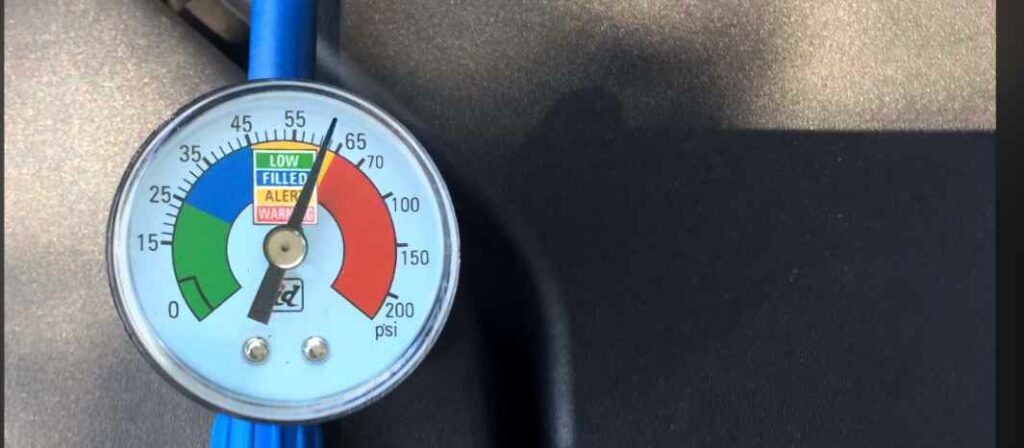
AC Gauge Going Up And Down – Understand the Importance!
When a homeowner notices the AC gauge fluctuating, it can be concerning.
However, it is important to understand that this is a common issue that can be caused by a number of factors.
One possible cause is a dirty air filter, which can obstruct airflow and cause the system to work harder than necessary.
Another possible cause is a refrigerant leak, which can cause pressure fluctuations within the system.
A malfunctioning compressor or thermostat can also cause the gauge to fluctuate.
It is important to have a professional HVAC technician diagnose and repair the issue to prevent further damage to the system and ensure efficient operation.
Why does my AC fluctuate?
One reason your AC might fluctuate is if the air filter is dirty.
A dirty air filter restricts airflow, which causes the AC to work harder to circulate air.
This can cause the AC to cycle on and off more frequently.
To fix this, replace the air filter.
Another reason your AC might fluctuate is if the thermostat is set to the “on” position. The “on” position will cause the AC to run continuously, which can cause it to cycle on and off.
To fix this, set the thermostat to the “auto” position.
Finally, your AC might fluctuate if the evaporator coils are frozen. This can happen if the AC is not sized properly for the space, or if the AC is not getting enough airflow.
You’ll need to thaw the coils and increase the airflow to the AC to fix this.
If your AC is fluctuating, don’t despair! There are a few things you can do to fix the problem. Be sure to check the air filter, thermostat setting, and evaporator coils before calling a professional.
Why does my AC go high then low?
There are a few reasons why your AC may be cycling between high and low.
One possibility is that the thermostat is set to “Auto” instead of “On.”
If the thermostat is set to “Auto,” the AC will cycle on and off based on the temperature in the room.
The other possibility is that the AC is too big for the room.
An AC that is too big will cycle on and off more frequently because it is not able to maintain the desired temperature in the room.
Lastly, the AC could be low on refrigerant.
If the AC is low on refrigerant, it will struggle to maintain the desired temperature in the room, which will cause it to cycle on and off more frequently.
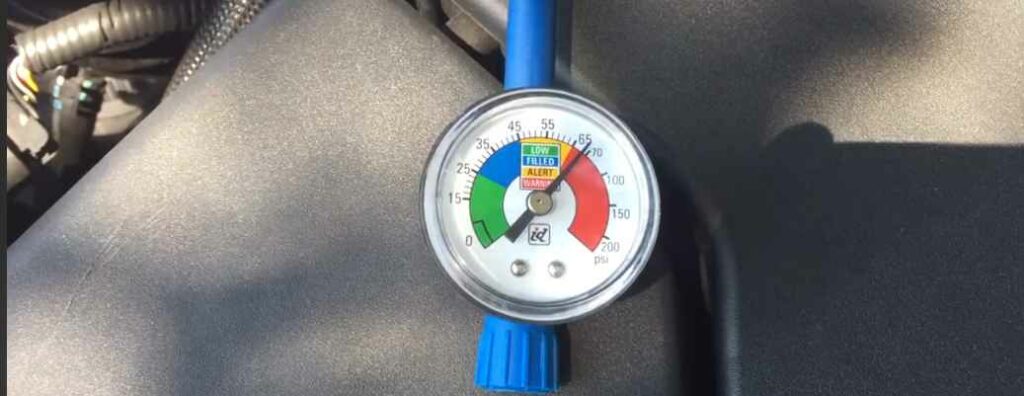
What are the symptoms of an overcharged AC system in a car?
Overcharging your car’s AC system can lead to a number of different symptoms. The most common symptom is the AC not blowing cold air.
This is because the AC compressor is not cycling on and off correctly, which prevents the AC system from cooling the air.
Other symptoms can include the AC system making strange noises, the AC system not turning on at all, or the AC system blowing hot air.
If you notice any of these symptoms, it’s important to take your car to a mechanic to have the AC system checked.
Car ac compressor clicks on and off constantly
If your car’s AC compressor is clicking on and off constantly, there are a few possible causes.
The most common cause is low refrigerant levels.
If your car is low on refrigerant, the compressor will turn on and off frequently in an attempt to circulate what little refrigerant is left.
Other possible causes of a clicking AC compressor include a faulty compressor clutch, a damaged compressor, or an issue with the AC system’s electrical components.
If your compressor is clicking and you’re not sure why, it’s best to take your car to a mechanic or AC specialist for diagnosis.
Why is my high side pressure fluctuating?
High side pressure fluctuation in a refrigeration or air conditioning system can be caused by several factors.
One of the common reasons is a malfunctioning expansion valve, which regulates the refrigerant flow and maintains the pressure on the high side.
If the valve is not working correctly, it can cause the pressure to fluctuate.
Another cause could be a dirty or clogged condenser or evaporator coil, which can restrict refrigerant flow and cause pressure imbalance.
Other potential causes include a faulty compressor, refrigerant leaks, or overcharging of the system.
Identifying the root cause of the fluctuation is crucial to ensure the proper functioning and longevity of the system.
It is recommended to consult with a professional technician to diagnose and fix the issue.
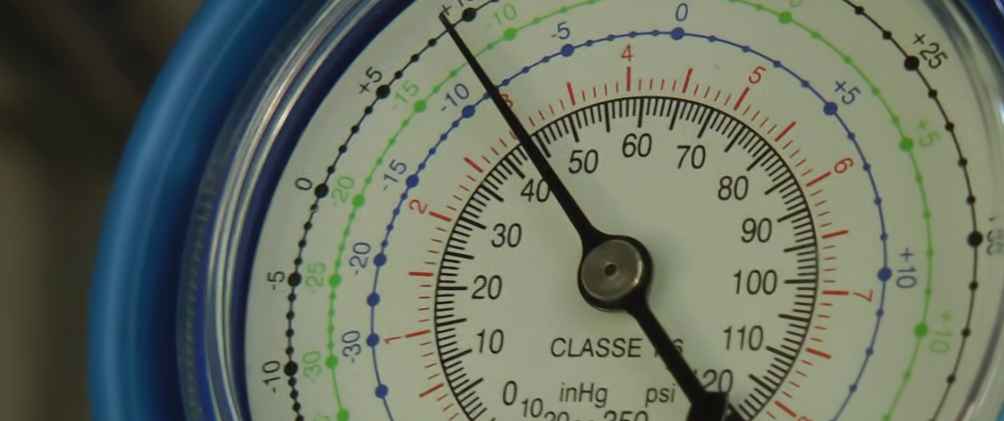
Low side gauge bouncing
If you’re noticing your low side gauge bouncing around while you’re driving, it could be a sign that your car is low on refrigerant.
This is because the low side gauge is directly connected to the low side pressure port, which is where the refrigerant enters the compressor.
When the pressure in this port is low, it can cause the gauge to fluctuate.
If you think your car may be low on refrigerant, the best thing to do is to take it to a mechanic or a dealership to have it checked out.
They’ll be able to add more refrigerant if necessary and check for any leaks in your system.
If still your ac low side needle bouncing, contact a professional to get them to fix it.
Why does car ac pressure fluctuate?
You’re not alone if you’ve ever wondered why your car’s AC pressure fluctuates.
It’s a common question, and there are a few different factors that can contribute to this issue.
One of the most common reasons for AC pressure fluctuation is a leak in the system.
Even a small leak can cause the pressure to fluctuate, and it can be difficult to find and repair a leak if you’re not a trained mechanic.
Another reason for AC pressure fluctuation is the temperature outside.
If it’s extremely hot or cold outside, the AC system has to work harder to maintain the desired temperature inside the car, which can cause the pressure to fluctuate.
Finally, the AC system itself can also be the cause of pressure fluctuation.
If the system isn’t properly maintained, the compressor can fail and cause the pressure to fluctuate.
If you’re concerned about AC pressure fluctuation in your car, the best thing to do is take it to a qualified mechanic to check it out.
Ac pressure drops when compressor turns on
If you notice that your car’s AC pressure drops when the compressor turns on, there are a few potential causes.
One possibility is that the compressor is not properly sealing when it’s turned on.
This can be due to a variety of issues, including a faulty gasket or O-ring, a loose compressor clutch, or a problem with the compressor itself.
Another possibility is that there is a leak in the AC system.
This can be due to a number of factors, including a damaged hose, a loose connection, or a problem with the seals.
If you suspect a leak, it’s important to have it fixed as soon as possible.
Otherwise, your AC system will continue to lose pressure, which can lead to further damage.
If you’re not sure what’s causing the problem, it’s best to take your car to a qualified mechanic for diagnosis.
They will be able to pinpoint the cause of the problem and recommend the best course of action.
Ac pro gauge in yellow
If you’re a car enthusiast, then you know that the ac pro gauge is a vital tool in keeping your vehicle in tip-top shape.
This particular gauge is designed to measure the pressure in your car’s cooling system, and it’s important to use one that is accurate.
The C pro gauge in yellow is one of the most popular models on the market and for good reason.
It’s easy to read and provides an accurate reading every time.
If you’re looking for a C pro gauge, then you can’t go wrong with the yellow model.
It’s a great tool for keeping your car’s cooling system in check, and it’s also very easy to use.
If you’re not sure how to use it, then don’t worry – there are plenty of tutorials and videos online that can help you out. Once you get the hang of it, you’ll be able to use it like a pro.
Ac pro gauge not moving
If your AC pro gauge is not moving, it could be because the compressor is not turning on.
This could be due to a number of reasons, such as a blown fuse, a tripped circuit breaker, or a problem with the compressor itself.
If you suspect that the compressor is not turning on, you should first check the fuse or circuit breaker.
If they are both working, then the problem is likely with the compressor itself.
How to fix overcharged ac?
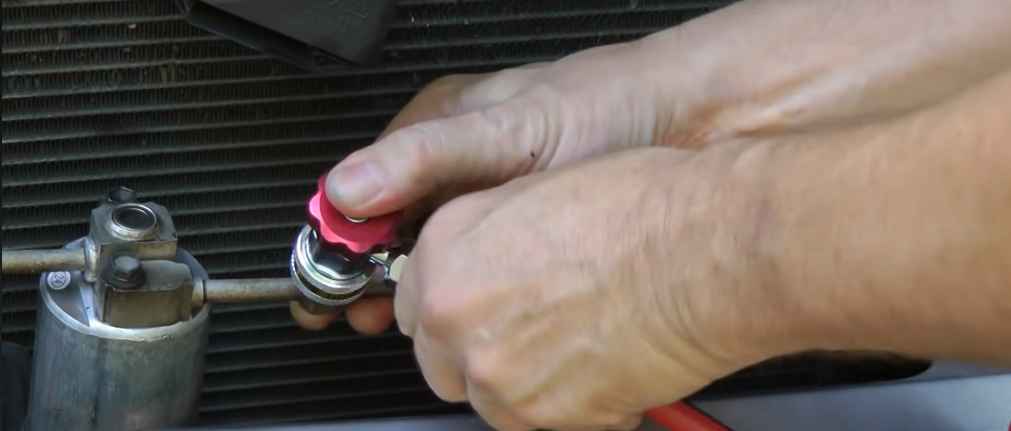
If your AC is overcharged, it can cause a variety of problems.
The most common problem is that the AC will not cool properly. This can be a very frustrating problem, especially during the summer months.
There are a few things that you can do to fix an overcharged AC.
The first thing that you need to do is to check the pressure in the AC system.
If the pressure is too high, it can cause the AC to not cool properly.
You can check the pressure with a pressure gauge. If the pressure is too high, you need to release some of the pressure.
The next thing that you need to do is to check the Freon level.
If the Freon level is too low, it can also cause the AC not to cool properly.
You can check the Freon level with a Freon gauge.
If the Freon level is too low, you need to add more Freon to the system.
The last thing that you need to do is to check the AC compressor.
If the AC compressor is not working properly, it can also cause the AC not to cool properly.
You can check the AC compressor with a compressor gauge.
If the AC compressor is not working properly, you need to replace the AC compressor. If you follow these steps, you should be able to fix an overcharged AC.
A/C Pro Gauge Fluctuating (SOLVED)
Ac pressure gauge readings
If you’re like most people, you probably don’t give your air conditioner’s pressure gauge much thought.
However, if you’re experiencing issues with your AC, checking the pressure readings on your gauge can give you some insight into what might be going on.
Here’s a quick guide to understanding AC pressure gauge readings.
The most important pressure reading on your AC pressure gauge is the high-pressure side.
This is the side that’s responsible for circulating refrigerant through your AC unit.
If the reading on the high-pressure side is too low, it could mean that there’s a leak in your AC unit.
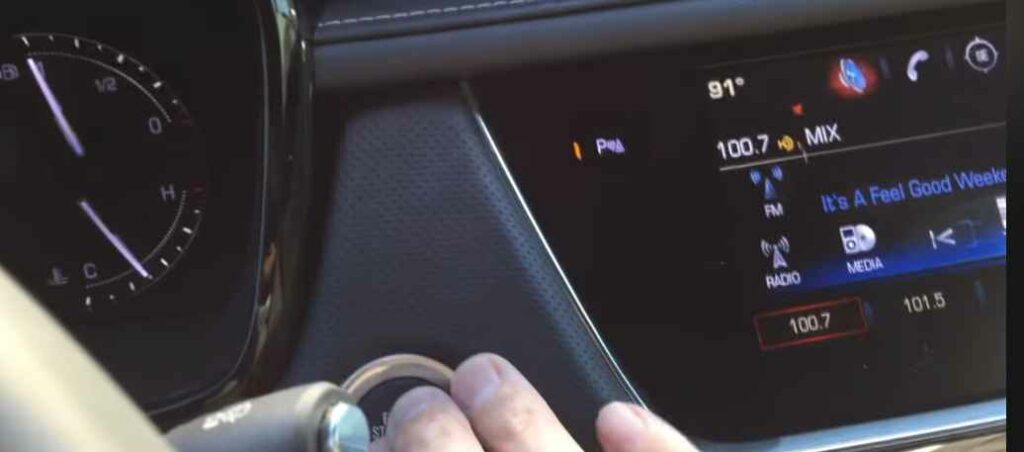
If the reading is too high, it could mean that your AC unit is overcharged with refrigerant.
The low-pressure side of the gauge is also essential.
This side is responsible for circulating Freon through your AC unit.
If the reading on the low-pressure side is too low, it could mean that your AC unit is undercharged with Freon.
If the reading is too high, it could mean that there’s a leak in your AC unit.
It is possible to get some insight into what is going on with your AC unit by checking the readings on your pressure gauge.
Conclusion
So, if you’re wondering why your car’s AC gauge is going up and down, it could be a sign of low Freon levels.
Don’t ignore the issue and let your car suffer in the heat. Take it to a trusted mechanic and have them check it out.
After all, no one wants to be sweating bullets while driving down the highway. Stay cool, my friends!